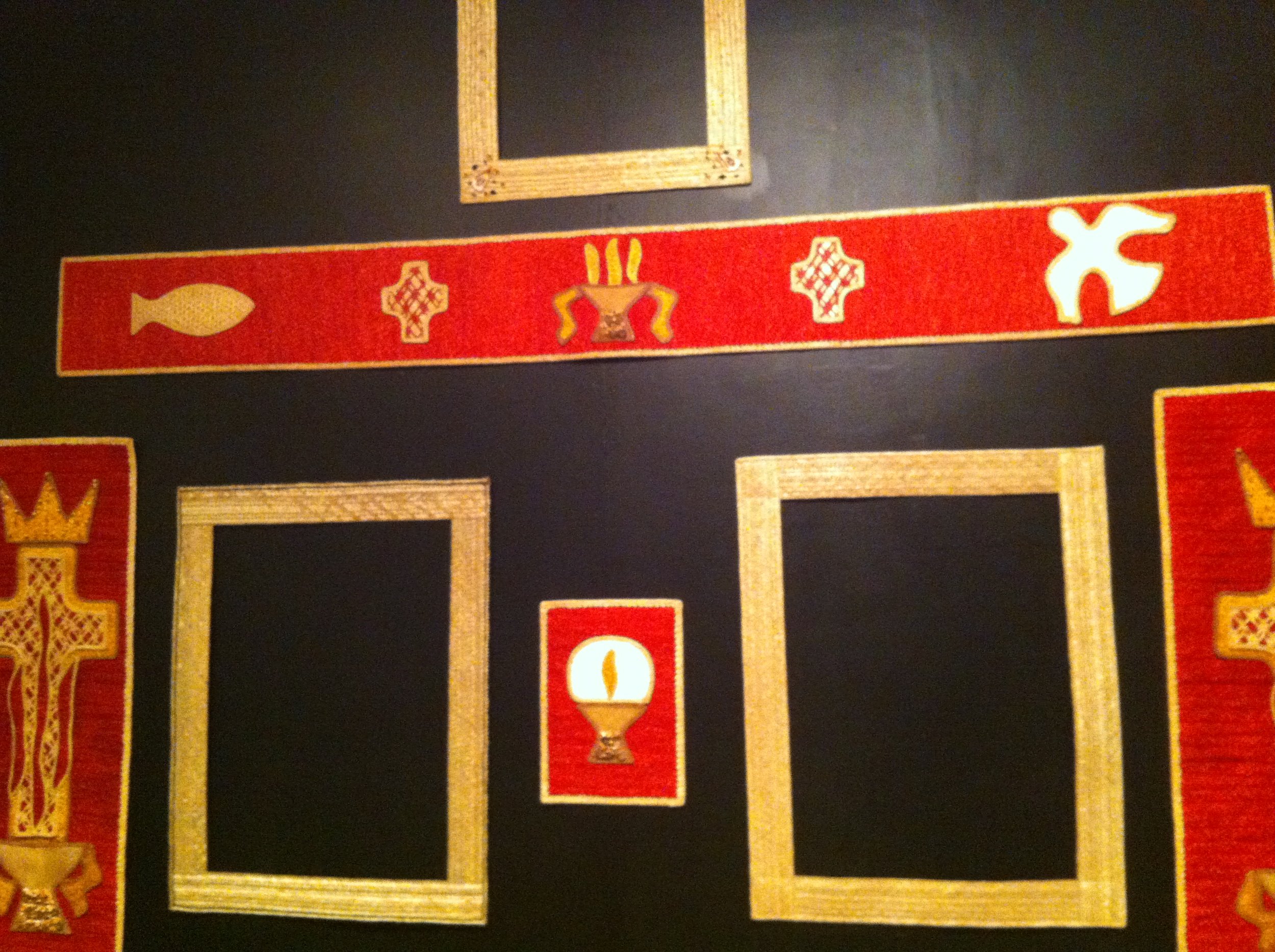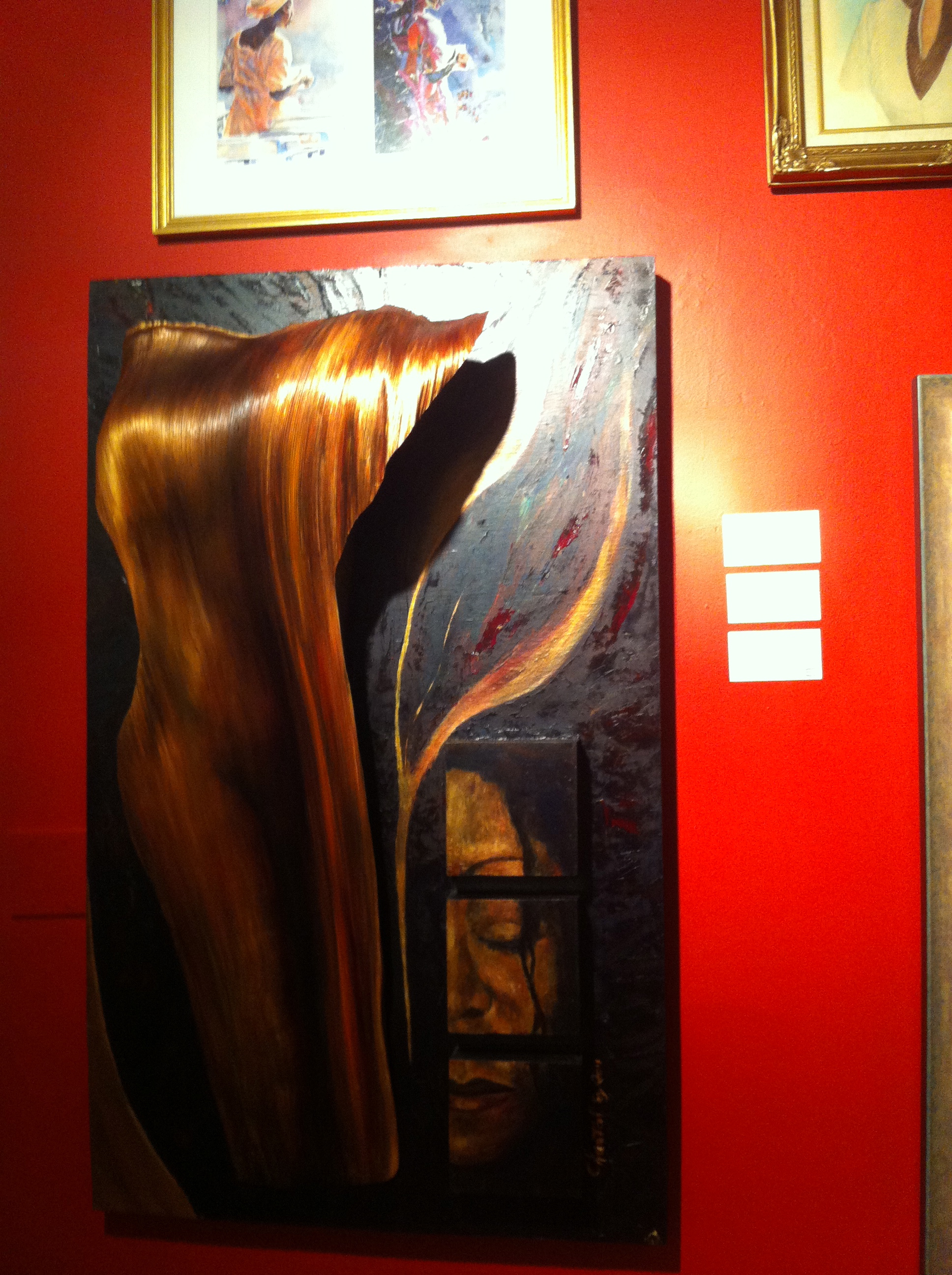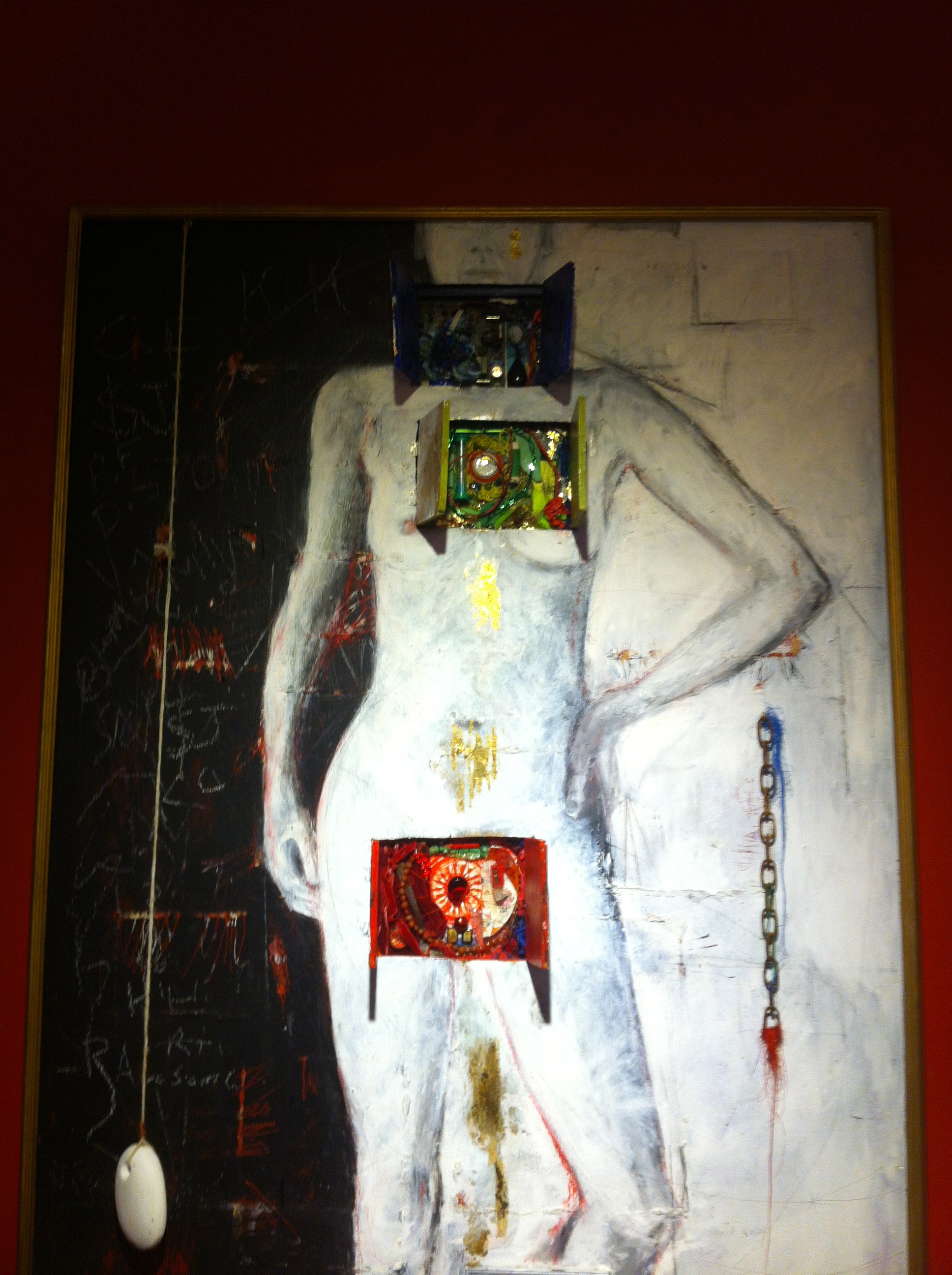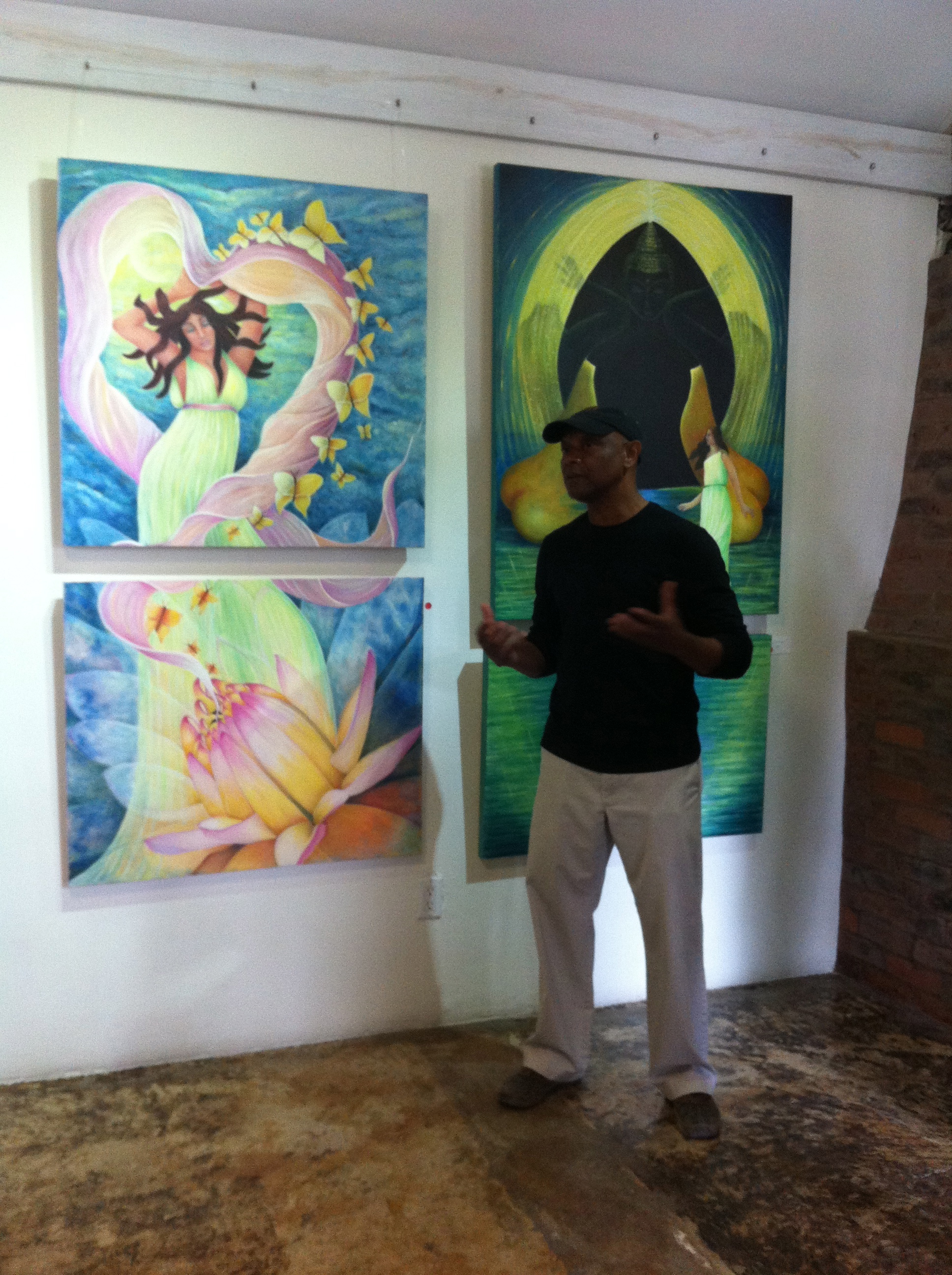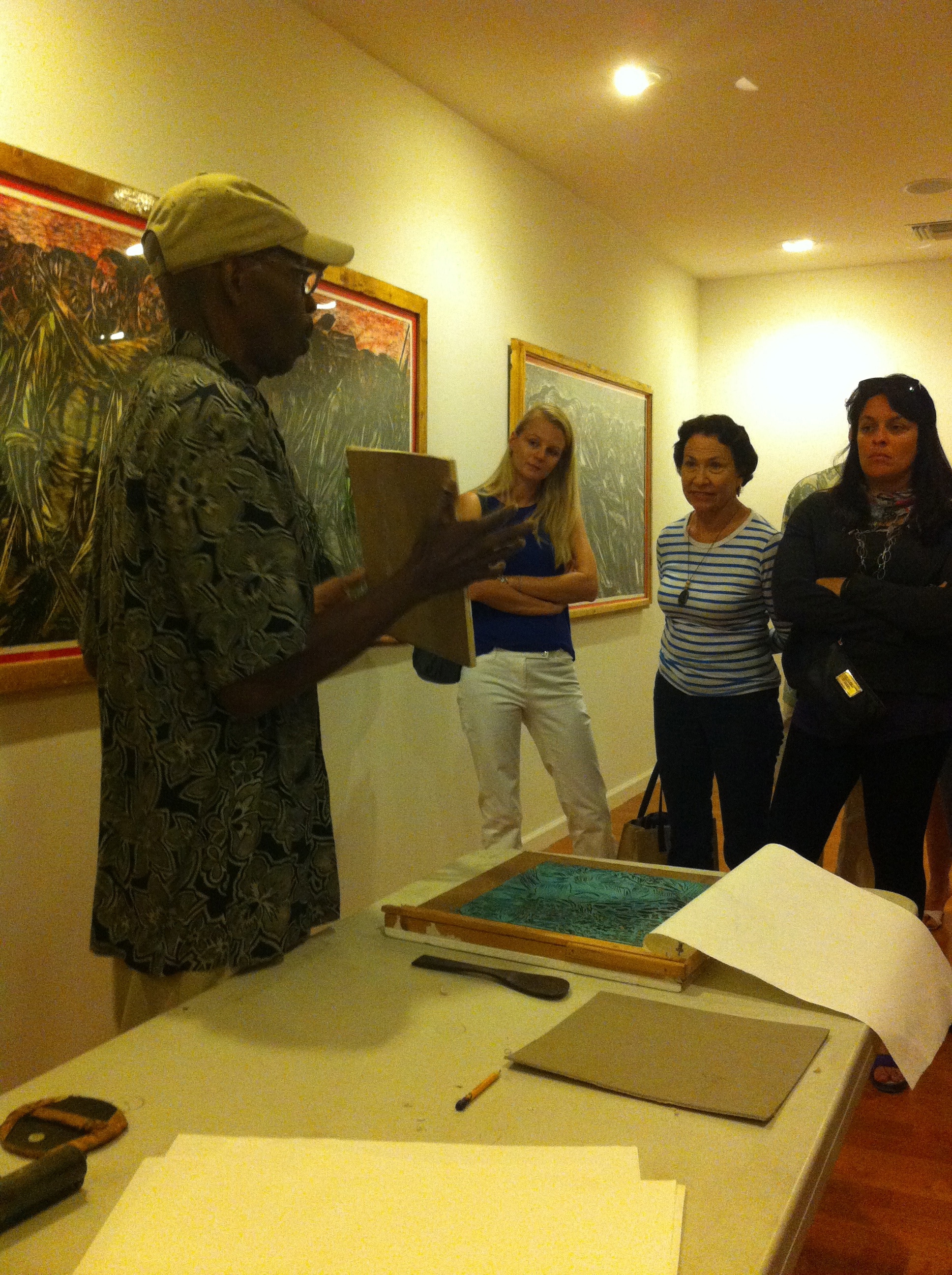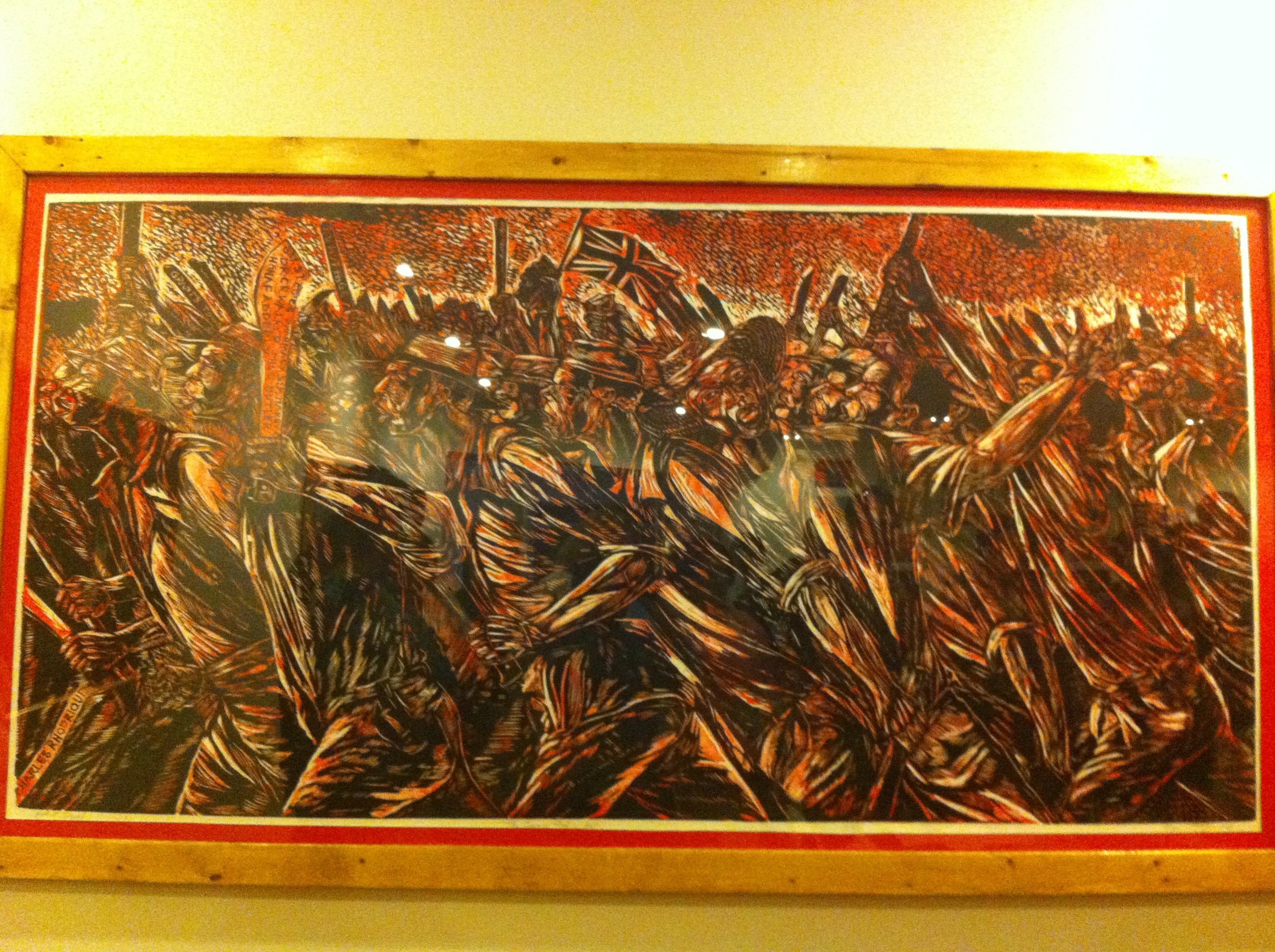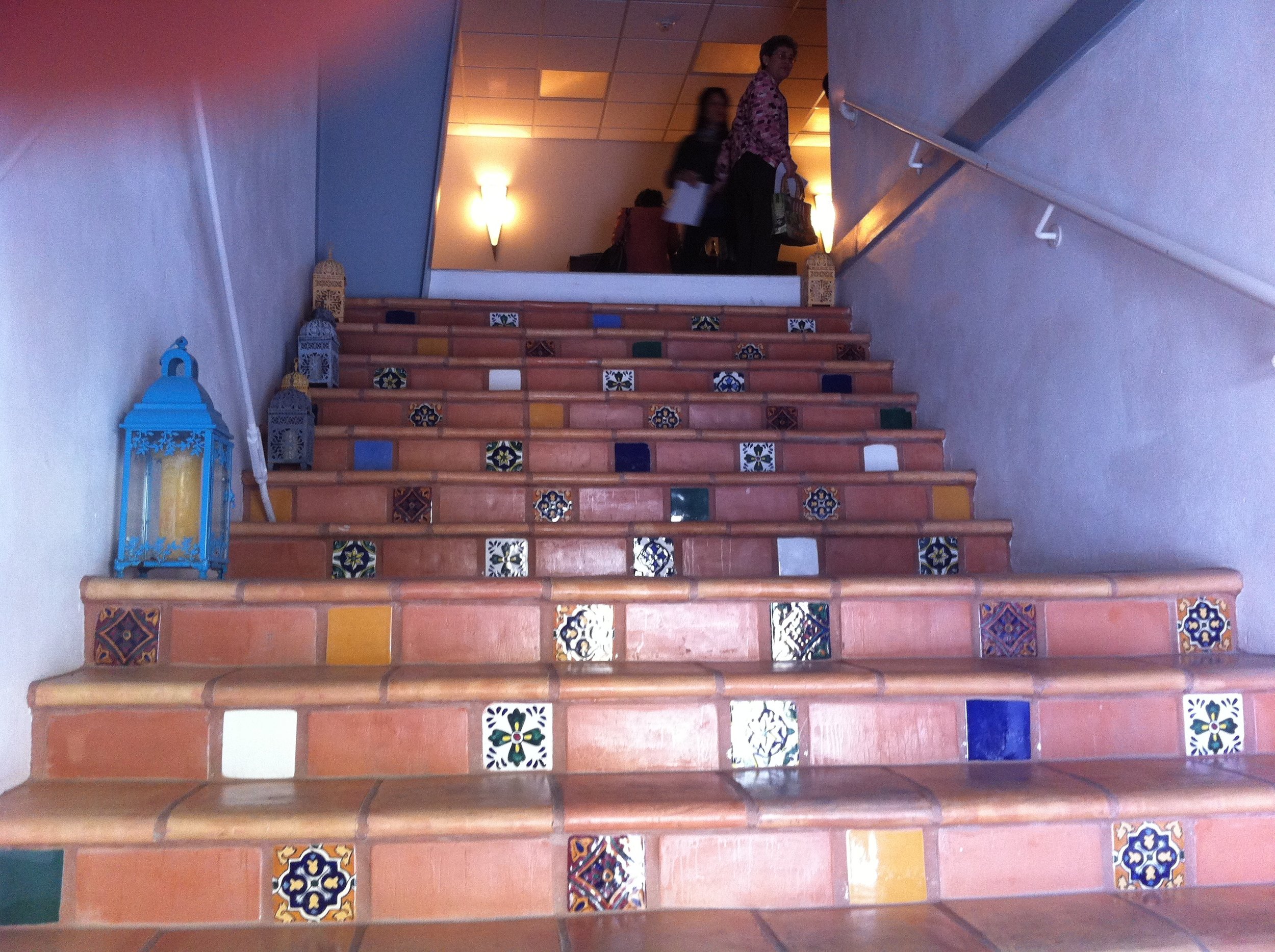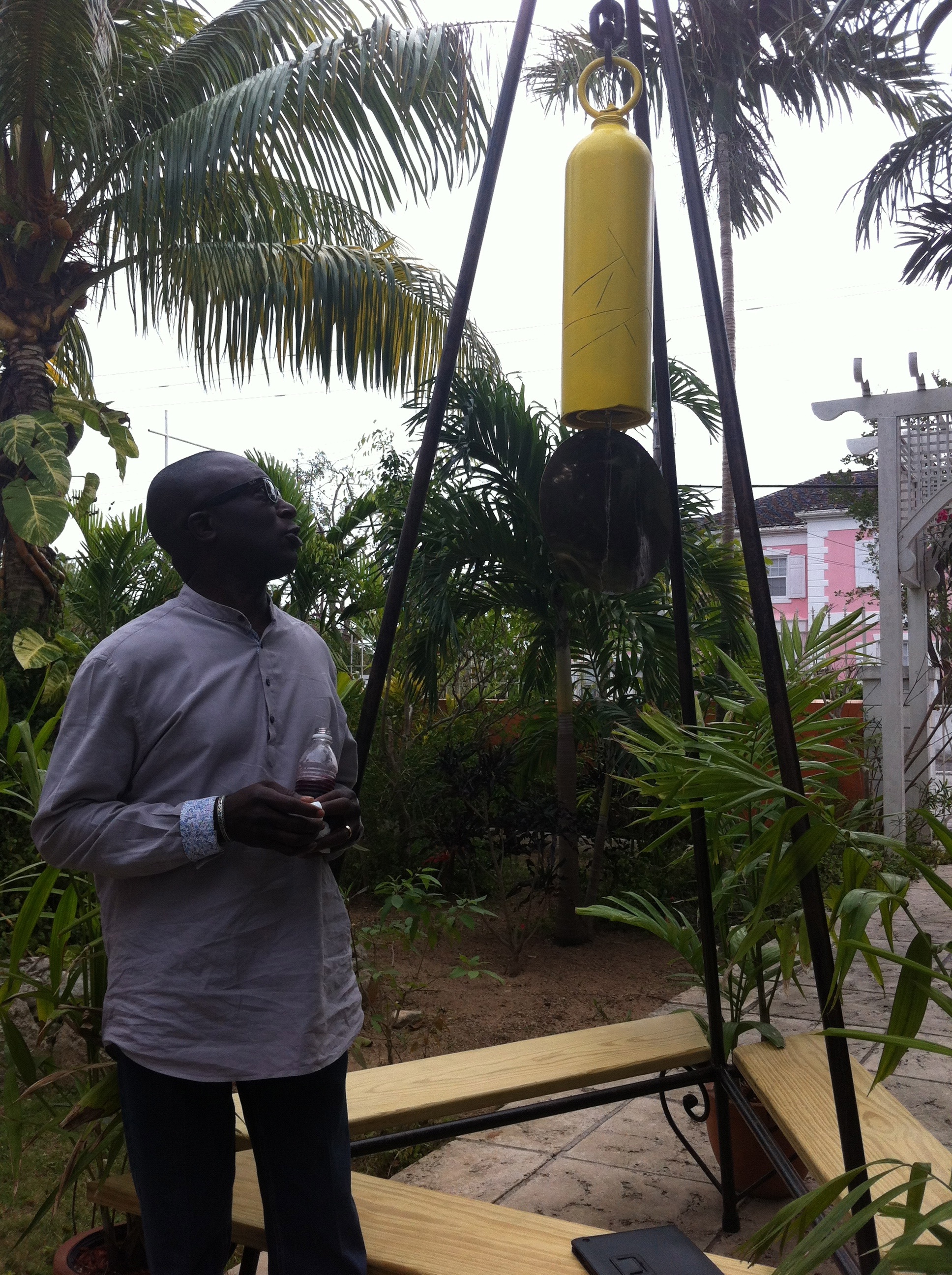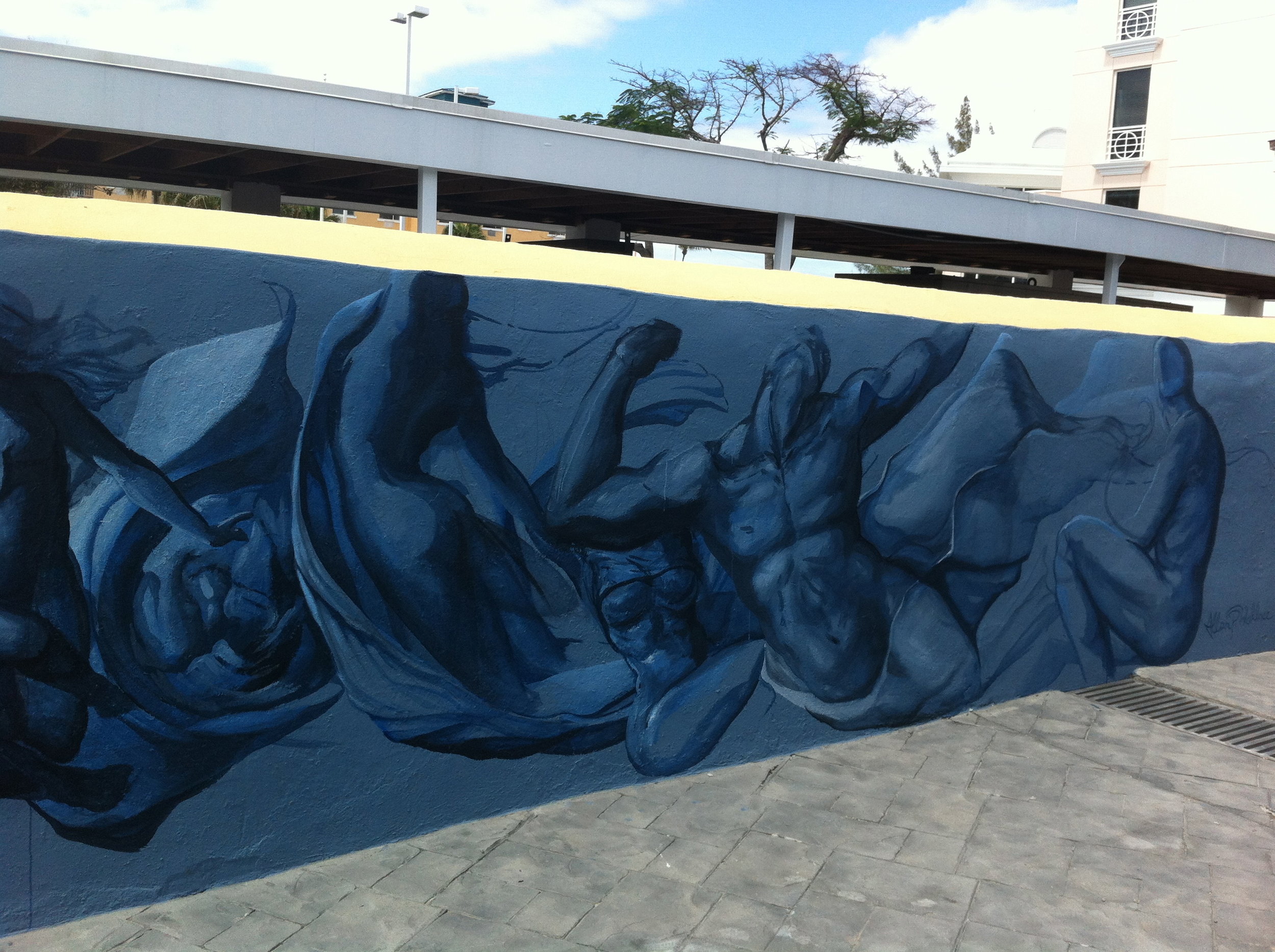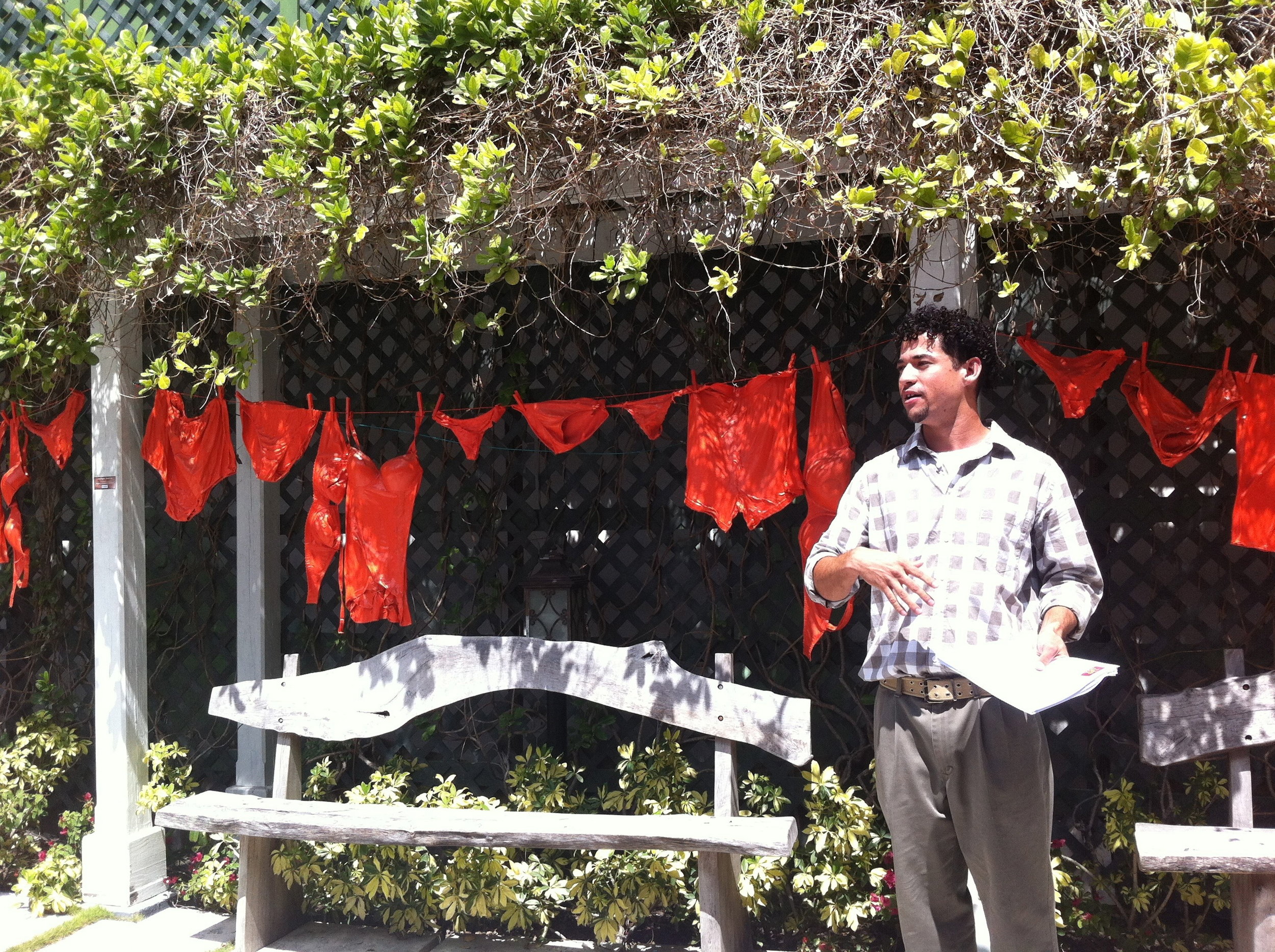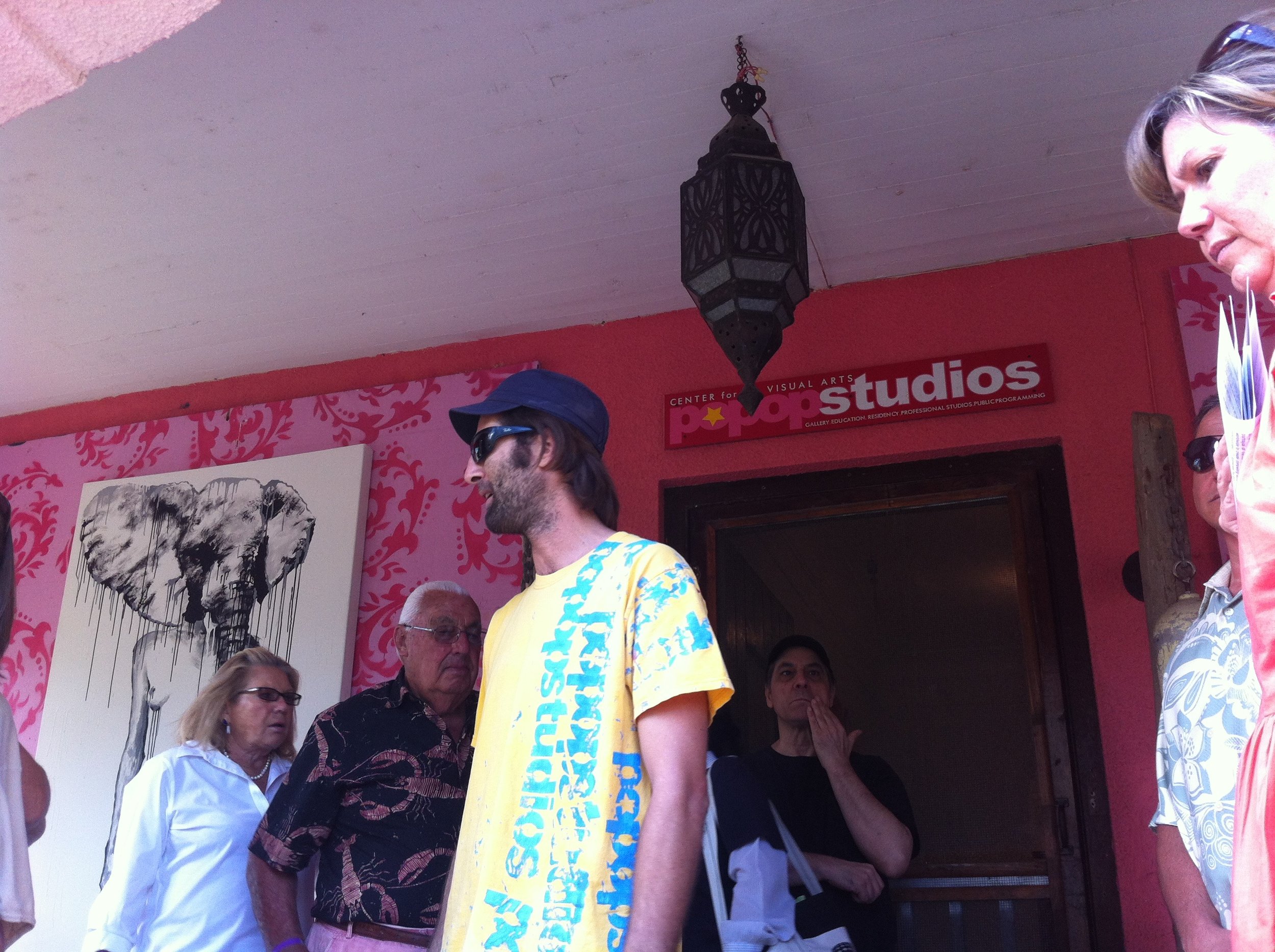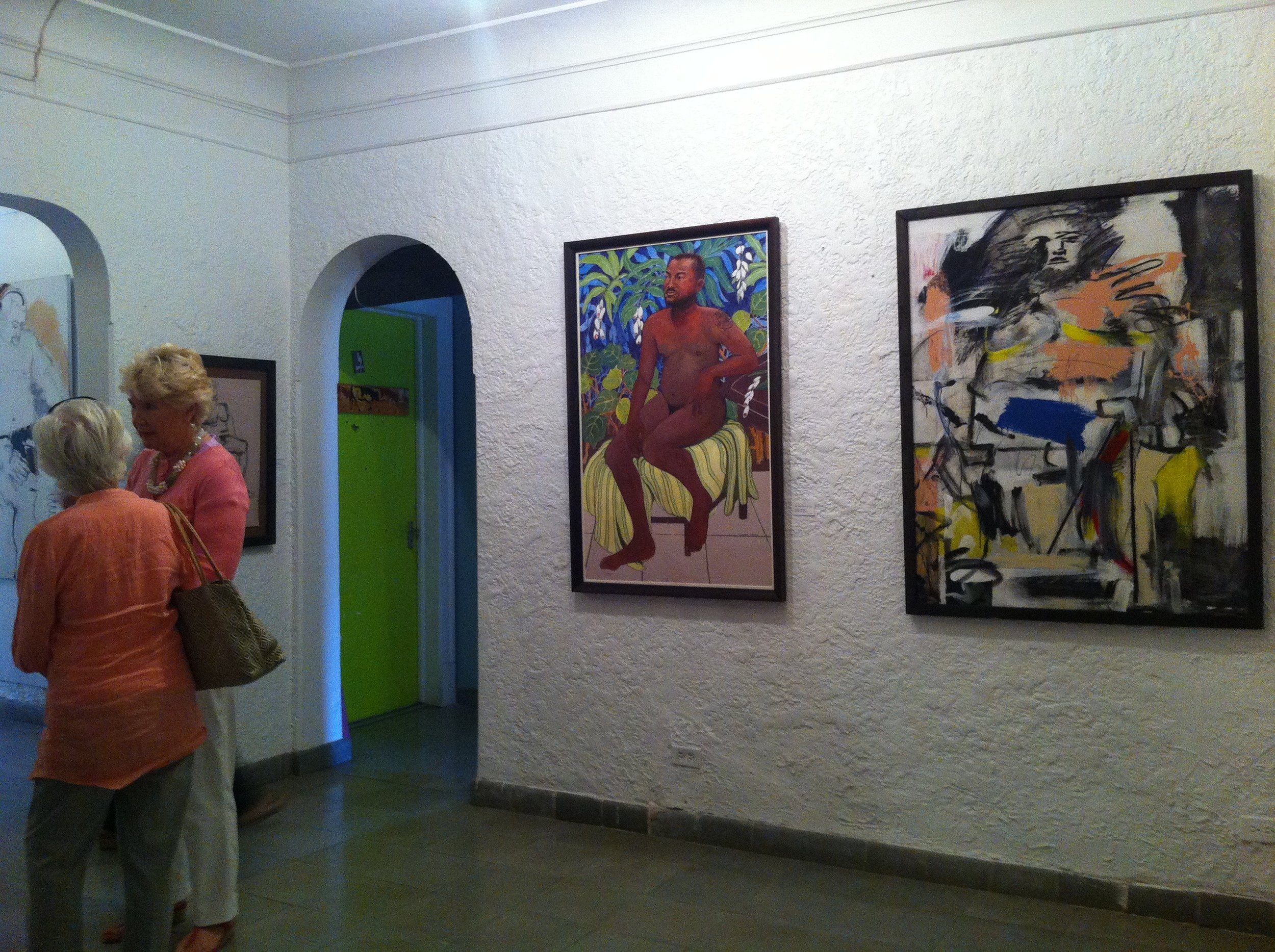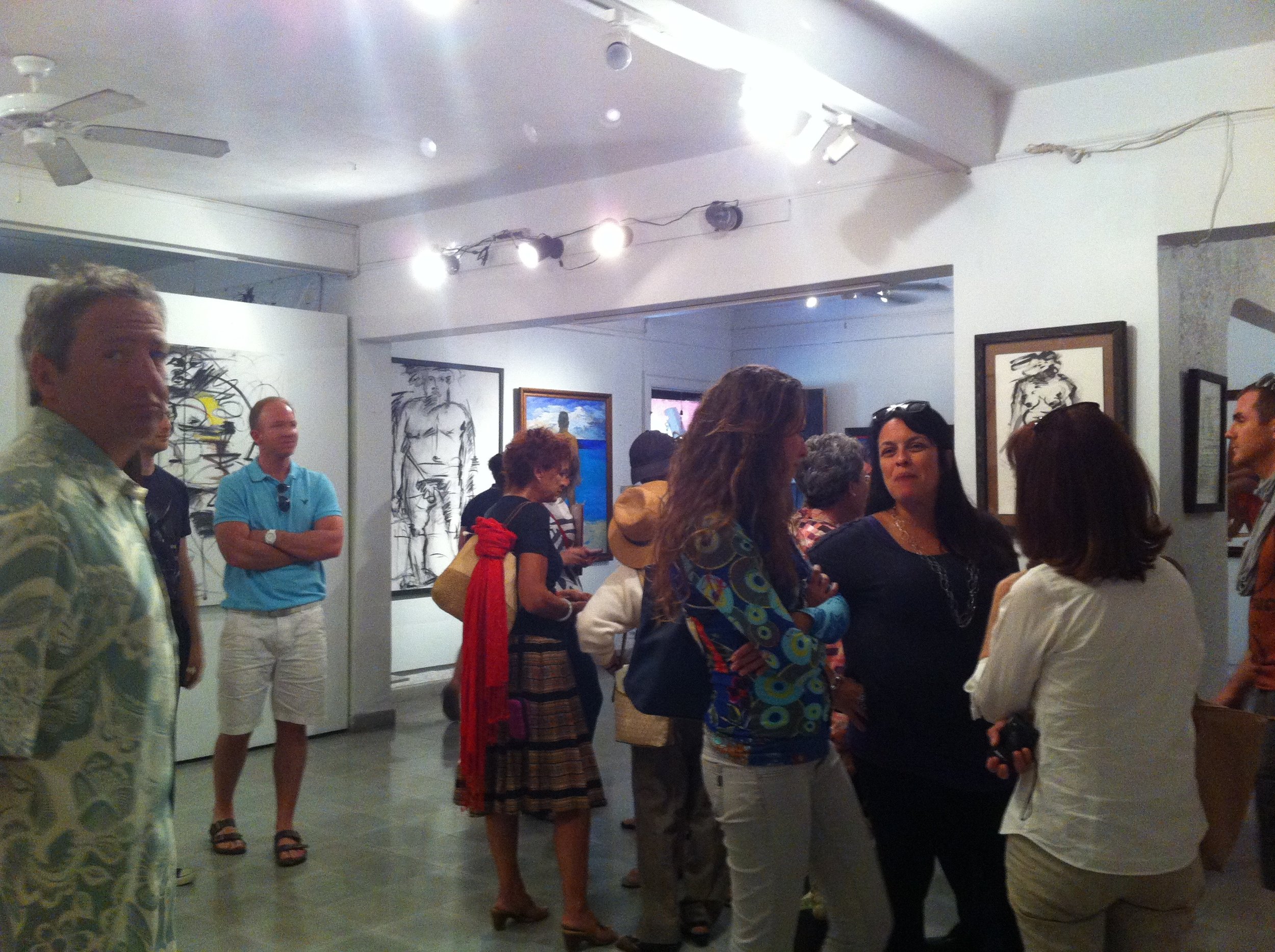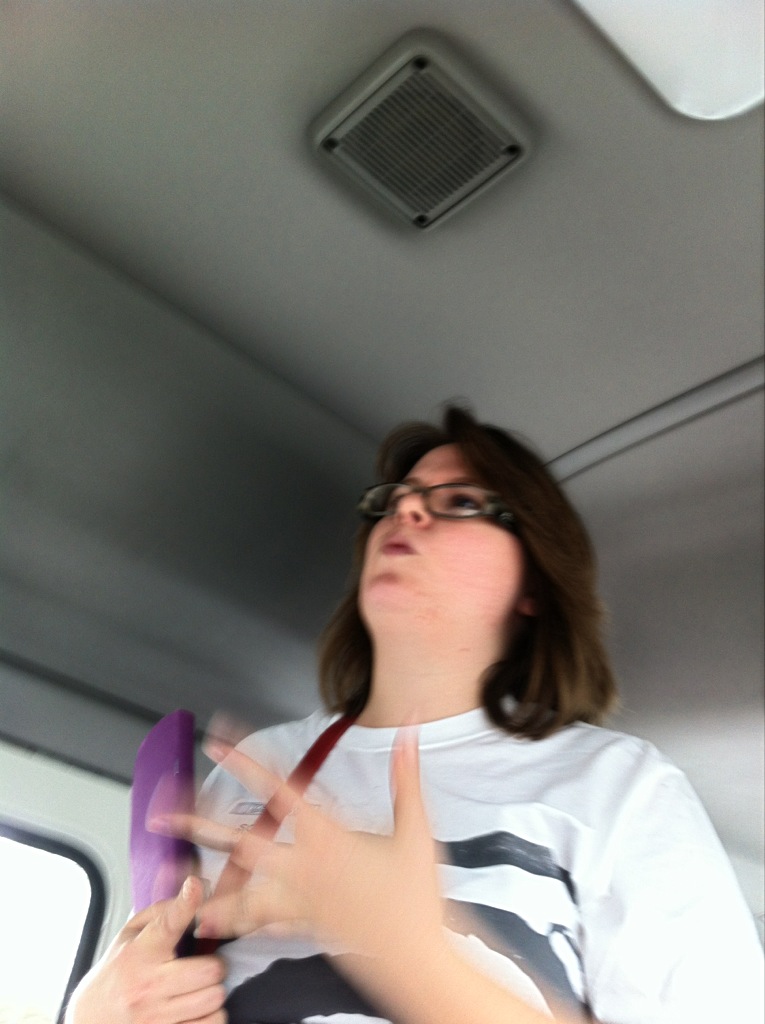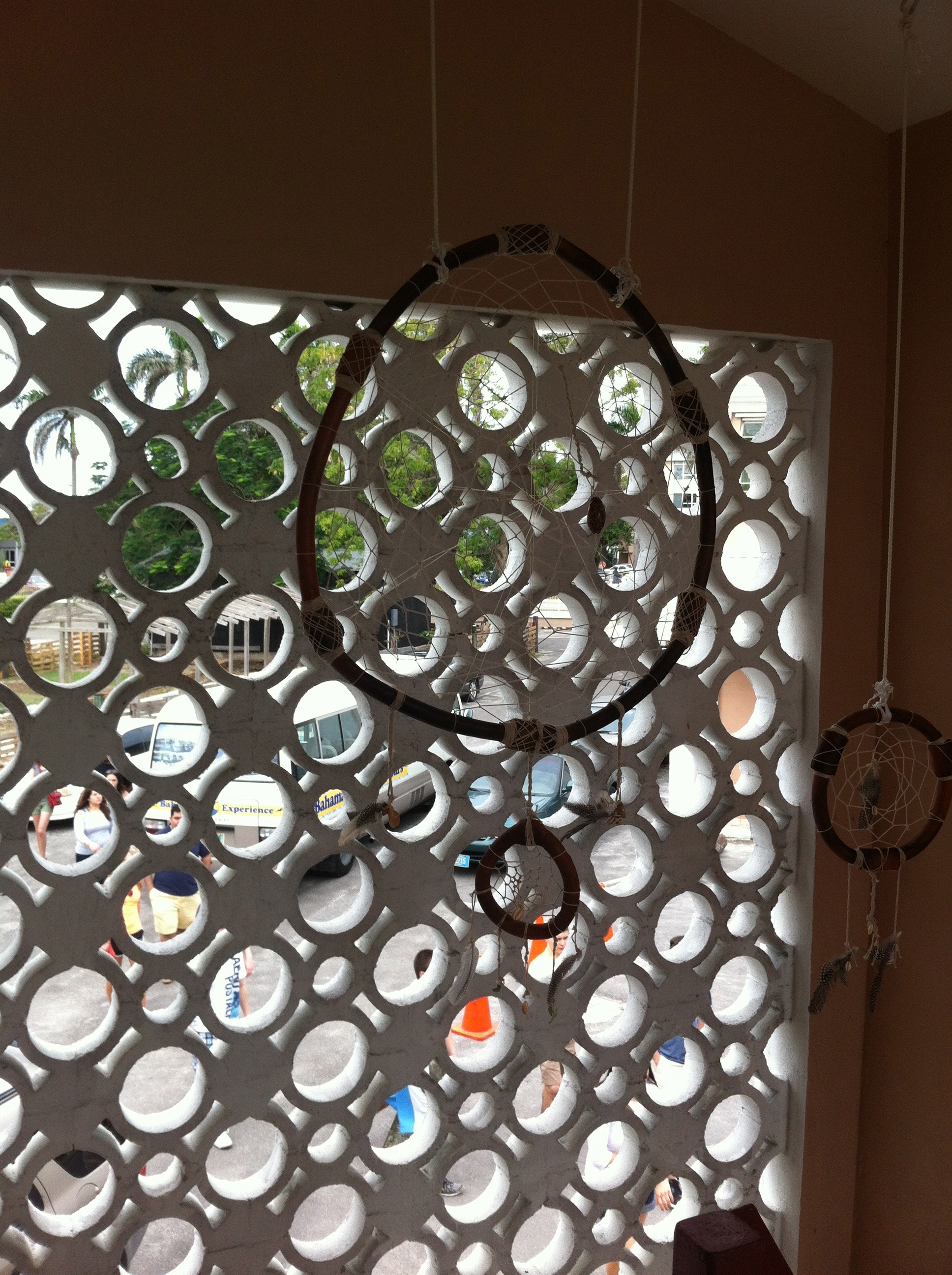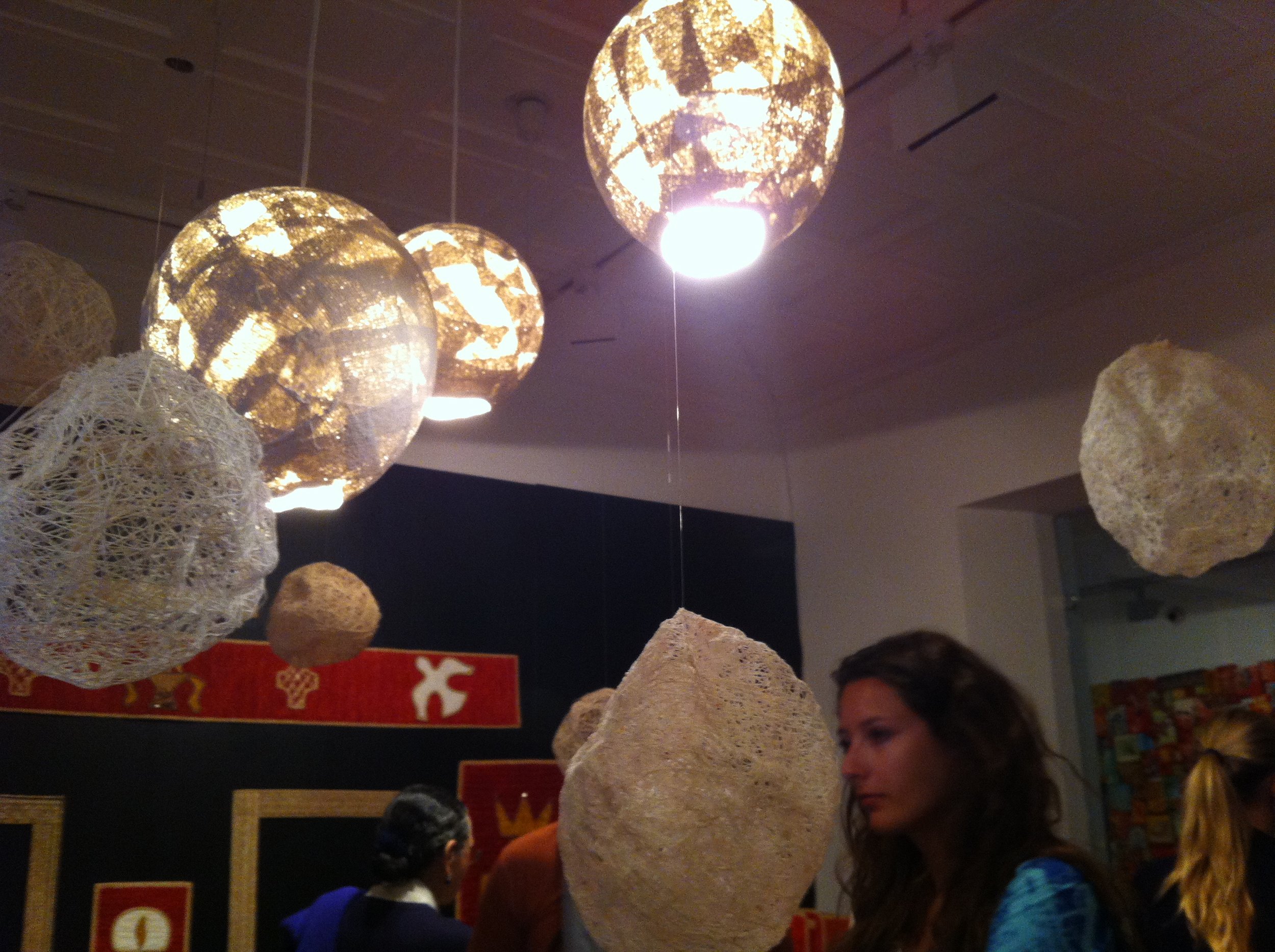People have been asking, as they do, what makes it cost so much to put on a theatre festival. It's a question we come up against a lot, whether it's asked in a straightforward fashion or whether it's behind some other question or assumption, such as the one I was asked outright last year: "Why can't you afford to pay the actors just a little bit--say $50 a day--for their participation?"
Part of the issue may be that these people see that we're selling tickets for our productions and make the assumption that the revenue we earn from that not only covers our costs but makes its way into our pockets as well....
Hold on. I'll be right back. I'm laughing too hard to see the screen just now....
OK, I'm back. And my laughter has been replaced with perplexity. After all, we all see the world from our own perspective. Maybe they--people, you, whomever--think that theatre is just about getting up on some empty stage somewhere and throwing out a few lines. How much can that cost anyway? And to top it all off, you're selling tickets! Pure profit! Why can't you share a little?
I can only speak for myself here, but I'll try and break it down.
When Ringplay Productions, our theatre company, or Shakespeare in Paradise, our theatre festival, prepares to put on a play, the first thing we do is choose a play. We like to do so based on some agreed-upon criteria. For Shakespeare in Paradise, it's either a Shakespeare play we haven't yet done, or it's a piece that we believe will speak to our audiences. Shakespeare in Paradise is dedicated to the production, preservation and celebration of Bahamian, Caribbean, African-American and African diaspora works because there aren't many theatre festivals out there that have a similar focus, and because the vast majority of our theatre scene in Nassau is introspective, focussed on current affairs and local issues. We seek to fill a gap.
So, back to basics: we choose the play.
Most times it's written by someone else. Many of those times, then, we have to pay for it. That's right! Plays are not free! Playwrights get paid royalties! and so that's the first cost we have to consider. It's a relatively minor cost, and is often calculated based on type of production (professional/community/amateur), but normal royalty payments total about $500-$600 per production.
So off the top: $500-$600 in cost.
Next we have to cast the play. To do that we like to hold auditions. We don't have to, as we could just pick people to be in the play from the people we know, but what would be the fun in that? Or, to look at it another way, that would not be in keeping with our desire to offer experience and exposure to a wide variety of people, so we have to hold auditions.
For that we need:
a space big enough to hold the people who come to audition
copies of the audition pieces
registration forms OR a tablet or a computer to keep track of the people who came to audition
a camera to take headshots
pens to help people fill things in
So before we get any further: another $500-$600 in cost (sometimes that cost can be shared or waived, depending on our access to the audition space).
Once we pick our cast, we need:
If the script is international, we either need to purchase enough books to give to our cast (that's the strictly legal way) or we need to reproduce it somehow.
In the 20th century this meant taking the script to a copying centre and getting copies made.
In the 21st century this means scanning the script and printing the copies out.
Either way, another $100-$200, depending on the size of the cast.
Then we need to rehearse the play.
For this we need a rehearsal space large enough to enable us to lay out an appropriate set, to encourage actors to project their voices the way God intended people to do before humans invented microphones, and to allow us to block and practice the play.
Rehearsal spaces don't come cheap. If we don't have access to an appropriate space, one of two things will happen. Either our rehearsals will not allow us to work in the physical dimensions that we will find on stage, and the final production will suffer and lose us money in missed ticket sales, or else they will cost us an arm and a leg. No, literally. The best rehearsal spaces come at $300 or $400 A REHEARSAL.
And we have to rehearse at LEAST twice a week (preferably 3-5 times a week for at least 4 weeks). Do the math. Rehearsals will cost us in the vicinity of $600-$1200 a week just for the space alone. This doesn't include the cost of keeping the cast comfortable--i.e. providing at the very least water for them to drink while they are working.
Total for rehearsals: $4800 and up.
So before we even get to the other things that make theatre theatre, we've spent a minimum of:
$500 for the play
$500 for auditions
$100 for scripts
$4800 for rehearsals
for a total $5900 before we can even get near to selling tickets.
So what else do we need?
Well, we need a performance space. A rehearsal space is one thing. It needs to be big enough to hold the cast and to mimic the size of the stage. A performance space is quite another. It has to be big enough for the performers and the audience alike. And it has to be big enough to allow us to generate enough money to help us cover the costs we've already spent.
So let's take the best one out there: the Dundas Centre for the Performing Arts.
The Dundas rents its theatre for a $1000 a performance and up.
The "and up" is often non-negotiable, and can run one to another $300 per performance, so the Dundas can cost you $1300 per performance.
Sounds like a lot (and is) but here's the advantage: for that $1300 you get the basics: 330-seat theatre, parking, lights, sound, security, dressing room, backstage, performers' entrance, performers' bathroom. These things sound simple, but trust me, they're not; NEVER take them for granted if you're doing theatre in this place!
So if you're doing a single performance, your costs have gone up to $7200. And you still haven't started to deal with set, costumes, props, tickets, programmes, or publicity.
So let's do some more math. Let's go back to that selling tickets idea. How much would we have to sell tickets for if we want to cover the costs we have listed so far?
If we sell EVERY SINGLE SEAT in the Dundas, we have to sell tickets at $21.81 to cover these costs.
See where I'm going?
Now let's add in the things that make theatre theatre.
Costumes. These can cost next to nothing if the cast supplies their own clothing, or a couple thousand if we are doing something elaborate, exciting, or unusual. This figure also depends on the size of the cast. A one-person play will cost very little. A large play, like a Shakespeare production or a musical, will cost a lot. Something like 2010's A Midsummer Night's Dream cost in the ballpark of $2000 for costumes, as every cast member had to be clothed in a particular way. Something like 2012's Merchant cost about $200, as the cast all wore street clothes. Let's pick something fairly modest that gives us some room to play with: let's say costumes cost $500.
Props. These, too, can cost next to nothing if borrowed or donated. But some things have to be bought, like fake knives, or anything else needed to create special effects. So let's say another $200.
Sets. These are non-negotiable. Every set costs money. Some cost more than others. Ours cost between $1000 and $6000, so let's pick a mid-point: $3000.
Lighting and sound. If we've invested in the Dundas, these come built in. We will have to pay for lighting and sound operation, but these are included in the cost of $1300. If, on the other hand, we have chosen another space, we are going to have to invest here. An adequate lighting system (something that lets the audience see the cast's faces) can be rented for $2000-$3000, but if we want more (which we rarely get) the cost goes up. So let's pick $2500.
In theatre, microphones shouldn't be necessary for ordinary plays. For musicals, that's a different matter, but in a play, the actor should have developed the ability to project her voice so that the audience can hear her no matter what; so we shouldn't need microphones. But we will probably need sound effects, music and so on. A basic sound system that provides that can be $200-$500. Let's say $250.
So where are we now?
We've just added another $6550 to our $7200.
Our little play is now costing us $13,750, and we haven't got to publicity, programmes or tickets yet; forget paying personnel.
So let's go there now.
Programmes can cost as little as a few hundred for paper, toner, and the printer or photocopier to duplicate them, or as much as $9000 for a full-cover printed deal. Our festival programme costs us a lot to produce and we have never paid less than $5000 for it. When we were doing one-off shows, though, we would run our programme off on a laser printer. That cost us about $150-$200. Tickets, though, need some investment. They are, after all, the things that make you money. Local printers can print tickets at about $400-$1000 these days, depending on how many you need (or you can order them from abroad, which looks cheap but costs something to bring them in -- either customs at the border or a plane ticket to get them here). So let's figure in another $1000 for programmes and tickets combined.
We'll need somewhere to sell the tickets. Some people use ticket outlets, which may donate their services or take a little in commission. Others, like us, use a stationary box office. That costs us money in both rent and personnel. So let's add in another $2000 for the box office.
And finally, publicity! There are all sorts of ways to get the word out there, but know this: the size of your audience depends very much on the quality of your marketing and publicity. Facebook does a lot, but does not do the whole job. The very best form of advertisement is television. For those who can afford it, cross-channel marketing (in the old days it was a commercial on ZNS during the news) is worth the investment -- but what an investment! If you want to sell your tickets, you have to invest several thousand right here. Let's be kind and add another $2000 to our pot.
Total cost of our production with ONE performance only: a cool $18,750.And that's being conservative in our estimate.
What does that come out to if we have to make all our money back on ticket sales then? How much will we have to price our tickets?
Our tickets have just gone up to $56.81 a head WITH FULL OCCUPANCY.
So what if we added in the suggested $50 per person per day? What would our costs be then?
Let's say we're doing a small play, with a few people in the cast. Let's say we have a cast of 4. We also have a director and a stage manager. Let's pay them all the same $50 a day.
Let's say we have a rehearsal period of 6 weeks with 3 rehearsals a week. Let's say that, because there are 4 people in the play, everybody has to be at every rehearsal. And let's say we just have one performance.
The math is 6 x 3 x 6 x 50 = $5400 for the rehearsal period + 6 x 50 for the performance = $300 for a total of $5700.
Our costs have gone up again to $24,450 for a single performance.
Your costs (cost per ticket) have gone up to $74.09 per ticket with FULL OCCUPANCY.
And we never get full occupancy; our most successful productions get about 60% occupancy. So jack the ticket price up again.
Here's how we make it work.
1) we don't pay local actors with cash. Yes, it sucks, but we want to keep doing what we're doing. And we happen to think that there is an exchange of sorts that's going on. There are no theatre schools in Nassau, and no real opportunity for training; the only way actors can hone their skills is by being in productions put on by experienced people and learning on their feet. So Bahamian actors gain experience and training that they don't have to pay for. It's a bad argument, but it's the only one we've got. The alternative is not to do theatre at all.
2) we don't invest all of the above for a single performance only. Yes, our rents go up when we have more performances, but all of the other costs are one-time investments, and they pan out over time. Once upon a time we would make the investment for a ten-night run; these days we find that we need to do at least 4-6 nights to make the investment worthwhile. Here's how that pans out:
Extra Rent = 5 x 1300 = $6,500 plus our base cost of $18,750 for a total of $25,250.
Total seats to sell: 330 x 6 = 1,980
NOW for us to cover our costs, the price per seat at full occupancy becomes a MUCH more manageable $12.75, and the price per seat for the expected 60% occupancy goes back to $21.25. This gives us room to work with less than full occupancy, and gives us the ability to offer bulk sales and discounts.
Maybe you'll get why I was laughing so hard at the top of this article. Pocketing money from theatrical productions is a dream. Covering our costs is the goal. Pure and simple.
That's how it's done.
I'll talk more about this again later, but for now, that's me.



